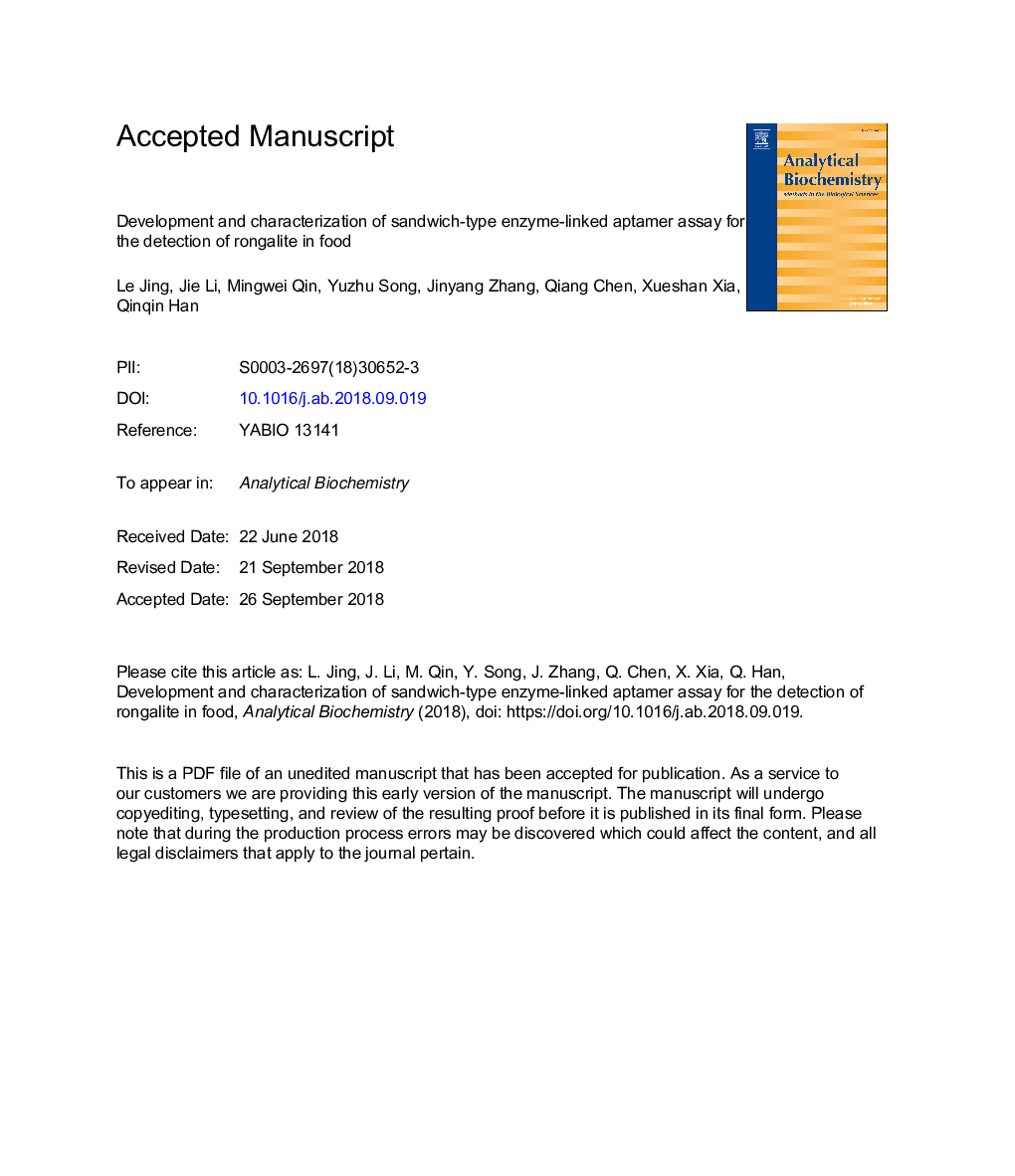| Article ID | Journal | Published Year | Pages | File Type |
|---|---|---|---|---|
| 11023208 | Analytical Biochemistry | 2018 | 41 Pages |
Abstract
Rongalite is an essentially strong carcinogen, which due to its properties as a bleaching and brightening, is illegally added to the food processing. In this study, a sandwich-type enzyme-linked aptamer assay (ELAA) is developed by using a rongalite-specific aptamer G02 modified fluorescein amidite (FAM) as a capture probe and aptamer C01 modified biotin as a signal element. In the presence of rongalite, the aptamer G02-rongalite-aptamer C01 complex is produced, and the absorbance value can be subsequently measured. The sandwich-type ELAA was shown to detect rongalite with high specificity and affinity, with a KD value of 19.91â¯Â±â¯1.321 nM. In addition, the standard curve was established, with the limit of quantification (LOQ) for rongalite at 10 ng mLâ1. By calculating the slope of the standard curve and the standard deviation of the blank values, the method detection limit (MDL) was 0.572 ng mLâ1. Additionally, the accuracy of the sandwich-type ELAA was demonstrated in real food samples. Compared with high-pressure liquid chromatography (HPLC) assay, the sandwich-type ELAA can detect rongalite directly, and it has great advantages in pre-treatment, operation technique and cost. In short, our data suggest that the sandwich-type ELAA may be applicable as a molecular detection technique for rongalite.
Related Topics
Physical Sciences and Engineering
Chemistry
Analytical Chemistry
Authors
Le Jing, Jie Li, Mingwei Qin, Yuzhu Song, Jinyang Zhang, Qiang Chen, Xueshan Xia, Qinqin Han,
